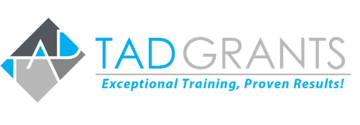Workshop One
Customer Service 101: This course will teach professionals how to best apply high-quality customer service strategies to quickly identify a customer’s needs; prioritize those needs based upon resource allocation, and handle customer requests with the utmost care and professionalism. Staff will also learn how to efficiently move customers into the most appropriate program/service that effectively meets their needs. Additionally, Customer Service 101 will provide both an overview and detailed information regarding the workforce system, the engagement of customers in the system, and the variety of pathways that customers can travel as they navigate through the workforce system.
Customer Service Skills: Communication and building strong relationships with customers are two of the foundations of all good customer service models. This course will address the ways in which we give and receive information, how to mindfully build trust, and strategies for making personal connections through technology.
Workshop Two
Dealing with Difficult Customers: Working with internal and external customers that are frustrated, angry, or even hostile can be incredibly challenging. It can even make you think about giving up and changing jobs or worse, abandoning your own commitment to providing outstanding customer service. Difficult customers are part of everyone’s life at one time or another. This course will provide strategies for practitioners to utilize when working with frustrated customers, how to deescalate problem situations, and guide the interaction to a resolution. Sometimes customers have a legitimate reason to be upset and sometimes they don’t. In either case, customer service staff needs to be prepared for dealing with difficult customers and finding ways to win them back. During our time together, we will focus on skills and tips in de-escalating anger, establishing common ground, and managing their own (staff) emotions. We will finish this training with practical ways staff can offer real, tangible hope to those they serve.
Workshop Three
Motivating and Engaging Job Seekers: It is difficult to lose a job, but it can be equally difficult for people to find the motivation, confidence, and commitment to reenter the workforce. This part of the workshop will focus on facilitated discussion on shared challenges practitioners face when working with job seekers who appear resistant to reenter the workforce. The 4-S Transition Model will be used as a guide for determining how best to connect with and motivate customers to resume their career journey.
Time Management E-Learning Course (Self-Paced)
Time Management: Do you wake up with a plan of all the things you will get accomplished for the day? By noon you are behind, nothing on your list is checked off, and by quitting time you feel frustrated? Then this course is going to change the way you think about organizing your day, your behavior and most importantly give you the strategies and methods for increasing efficiency and reducing your daily stress and frustration. Students will learn how to prioritize daily tasks, how to evaluate activities in terms of importance and urgency, understand how priorities vary between roles, determine how to organize your schedule to improve efficiency, and identify what time boundaries are and how to implement them.


